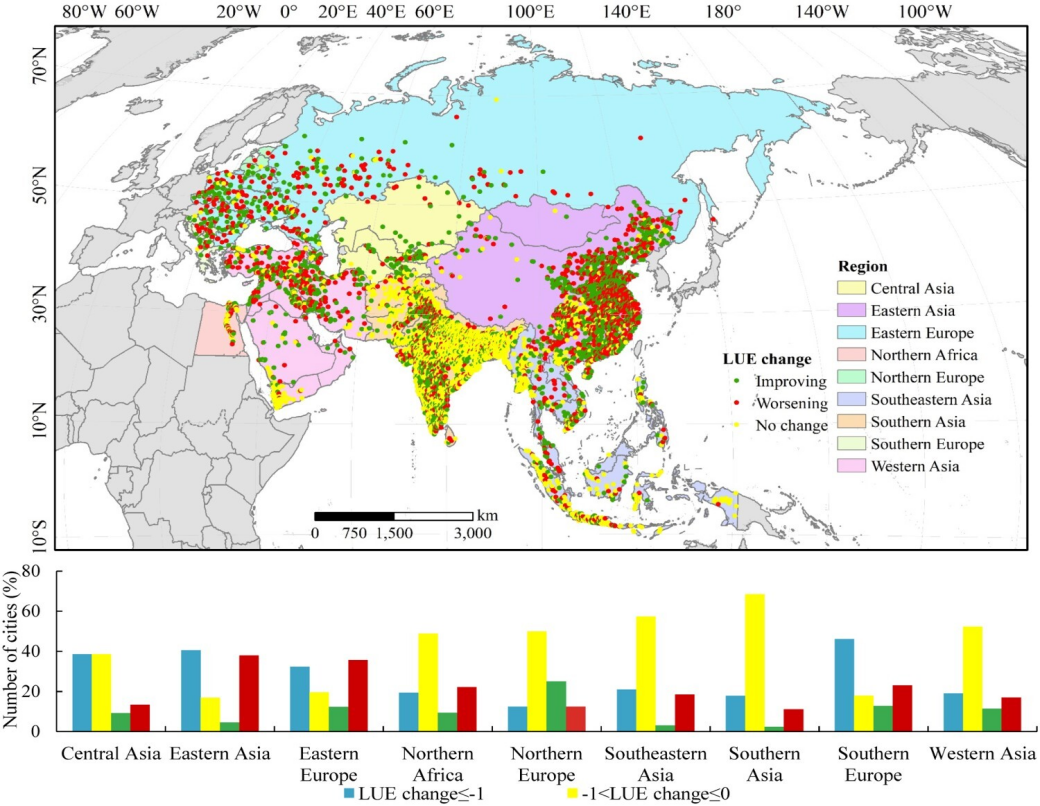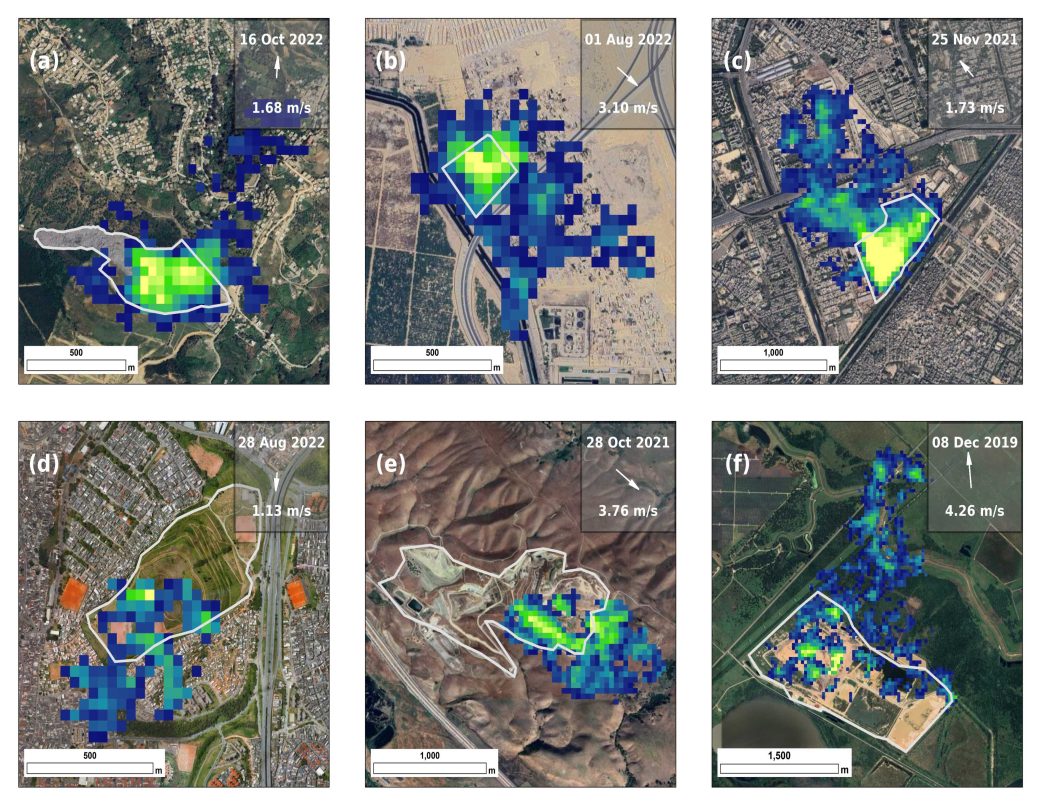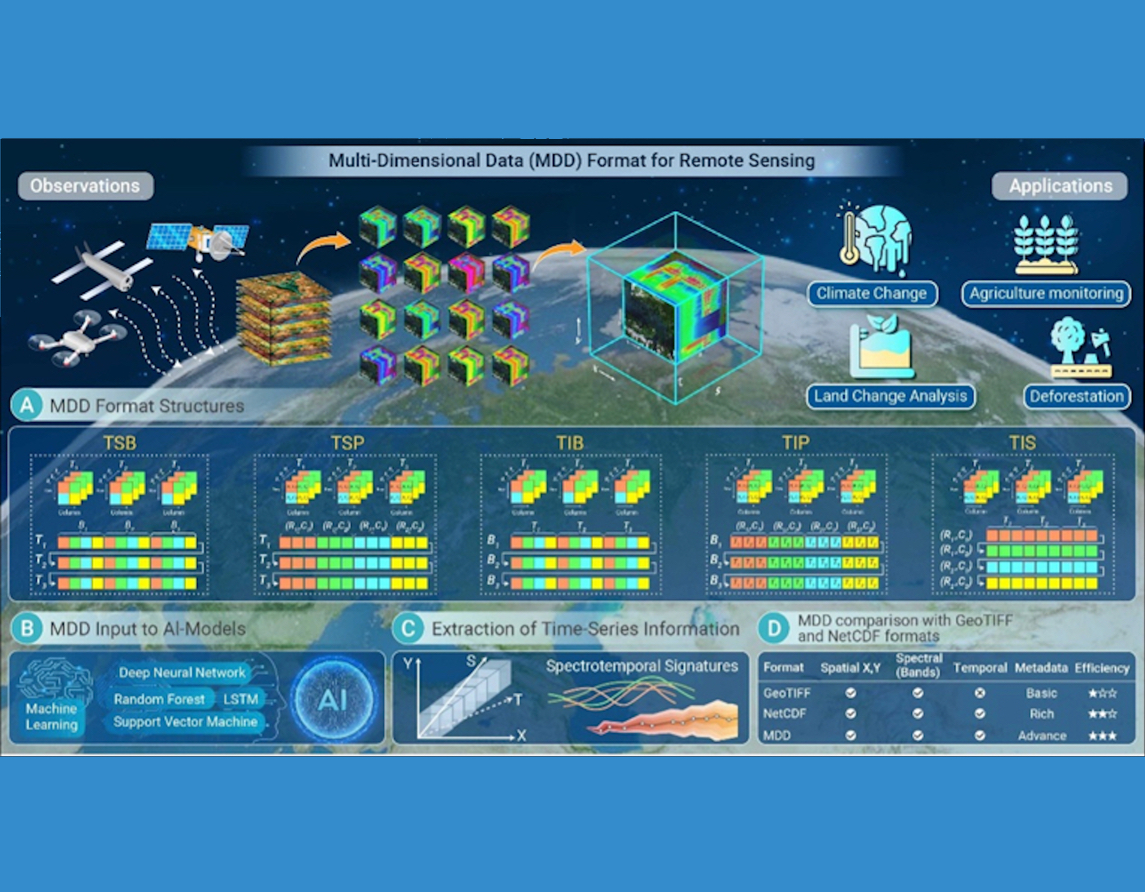-
 Big Earth Data Method Uncovers Two Decades of PM2.5 Transport Pathways Across China
Big Earth Data Method Uncovers Two Decades of PM2.5 Transport Pathways Across ChinaA new study has, for the first time, mapped long-term, large-scale transport pathways of PM2.5 pollution across China from 2000 to 2021. Published in Geoscience Frontiers, the research introduces an innovative data-driven framework based on the Dynamic Times Warping (DTW) method to trace how air pollutants have moved across the country during the two decades. The findings offer critical insights into the evolution of PM2.5 transport and provide scientific support for more effective air quality management.
22 Aug 2025 -
 Nighttime Satellite Data Illuminates Urban Development of China's Mega-Cities
Nighttime Satellite Data Illuminates Urban Development of China's Mega-CitiesResearchers at the Aerospace Information Research Institute (AIR), Chinese Academy of Sciences, have developed a novel approach for assessing urban sustainability using data from the SDGSAT-1 satellite. Their study, published in Remote Sensing of Environment, demonstrates that high-resolution (10 m) Glimmer Imager observations can reveal detailed patterns of human activity, population aggregation, and intercity connectivity across China’s three major urban agglomerations: the Beijing–Tianjin–Hebei region, the Yangtze River Delta, and the Guangdong–Hong Kong–Macao Greater Bay Area.
22 Aug 2025 -
 Snow Algae Found to Accelerate Antarctic Ice Shelf Melting, Study Reveals
Snow Algae Found to Accelerate Antarctic Ice Shelf Melting, Study RevealsPublished in Scientific Reports, the research is led by Dr. LIANG Dong from the Aerospace Information Research Institute, Chinese Academy of Sciences. By combining high-resolution satellite data from the Sentinel-1 and Sentinel-2 with advanced analytical techniques, the study explores how snow algae growth, temperature changes, and snowmelt interact on two major Antarctic ice shelves—Brunt and Riiser-Larsen ice shelves—between 2019 and 2022.
22 Aug 2025 -
 Multi-Source Earth Observation Enables City-Level Assessment of Urban Sustainability Across Belt and Road Region
Multi-Source Earth Observation Enables City-Level Assessment of Urban Sustainability Across Belt and Road RegionA recent study published in the International Journal of Digital Earth presents a first city-level assessment of urban sustainability trends across more than 7,000 urban centers in the Belt and Road Initiative (BRI) region. Utilizing multi-temporal Earth observation (EO) data, the research evaluates two SDG 11 indicators—Land Use Efficiency (LUE, SDG 11.3.1) and population-weighted PM₂.₅ concentrations (PPM₂.₅, SDG 11.6.2)—from 2000 to 2020, providing a spatiotemporal analysis of sustainability of urban spatial expansion and environmental exposure.
30 Jul 2025 -
 High-Resolution Satellite Remote Sensing Reveals Underestimated Methane Emissions from Global Landfills
High-Resolution Satellite Remote Sensing Reveals Underestimated Methane Emissions from Global LandfillsA research team led by Dr. CHENG Tianhai at the Aerospace Information Research Institute (AIR) of the Chinese Academy of Sciences has made significant progress in monitoring methane emissions from landfills. By leveraging high-resolution satellite remote sensing, the team developed a method for accurately quantifying methane emissions from landfills. This method was applied to conduct a comprehensive global assessment of landfill emissions. The findings were published in Nature Climate Change on July 28, 2025.
28 Jul 2025 -
 Chinese Researchers Revolutionize Satellite Data Processing with New 4D Format and MARS Software
Chinese Researchers Revolutionize Satellite Data Processing with New 4D Format and MARS SoftwareResearchers at the Chinese Academy of Sciences' Aerospace Information Research Institute (AIR) have unveiled a groundbreaking Multi-Dimensional Data (MDD) format and MARS software that unifies time, space, and spectral dimensions of satellite data for the first time. Published in The Innovation and led by Professor ZHANG Lifu, this innovation processes Earth observation data 482% faster than industry-standard ENVI software while using 97% less storage—solving decades of fragmentation in environmental monitoring.
18 Jul 2025


